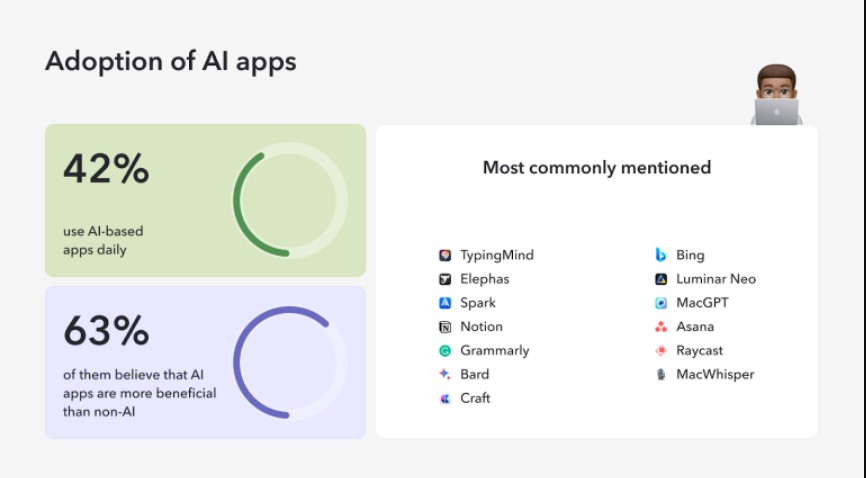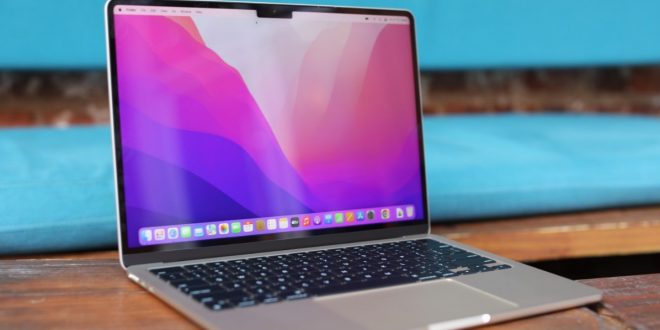According to a new report from app subscription service Setapp, 42% of Mac users use AI-based apps daily, and 63% believe they are more beneficial than those without AI. Mac app developers are also adopting AI, with 44% having implemented AI or machine learning models and 28% working on it.
The company, which sells subscriptions to over 230 Mac apps, publishes an annual report on Mac apps. This year, its survey included 1,241 Mac users, mostly from the U.S., so it may not reflect global AI-app adoption. The report notes that this segment of Mac users is interested in AI apps, noting that top AI apps include non-native macOS apps like Google’s AI Bard and Bing, which integrated OpenAI technology.

TypingMind, Elephas, Spark, Notion, Grammarly, Craft, Luminar Neo, MacGPT, Asana, Raycast, and MacWhisper are also popular AI apps. Some of these use AI to enhance their apps, rather than being AI-only apps.
In an announcement, Setapp product lead Mykola Savin said, “We see how AI is transforming the app’s usage experience by providing additional user assistance.” AI tools and platform features are also widely used at Setapp. The first AI attempt may fail. They use those features repeatedly when they do.”
This is the first year Setapp has asked about AI app adoption in its annual survey, so it’s unclear how many more Mac users are using AI apps daily. AI apps seem to take up a significant portion of users’ daily workflows. Users use up to 15 of their average 51 Mac apps daily. Since 42% use AI apps daily, AI is now a big part of users’ workflows.
Other popular apps include browser apps, Microsoft and Google Office tools (both of which are integrating AI technologies), and Adobe software, which uses generative AI in Photoshop and other Creative Cloud apps. So users may be exposed to AI-powered apps more.
The survey also found that subscriptions are more popular than one-time purchases and that the Mac App store, YouTube, and social media are the top ways to discover Mac apps. Along with other highlights, 70% of survey respondents own a Mac with an M1 or M2 chip.
 Tech Gadget Central Latest Tech News and Reviews
Tech Gadget Central Latest Tech News and Reviews




